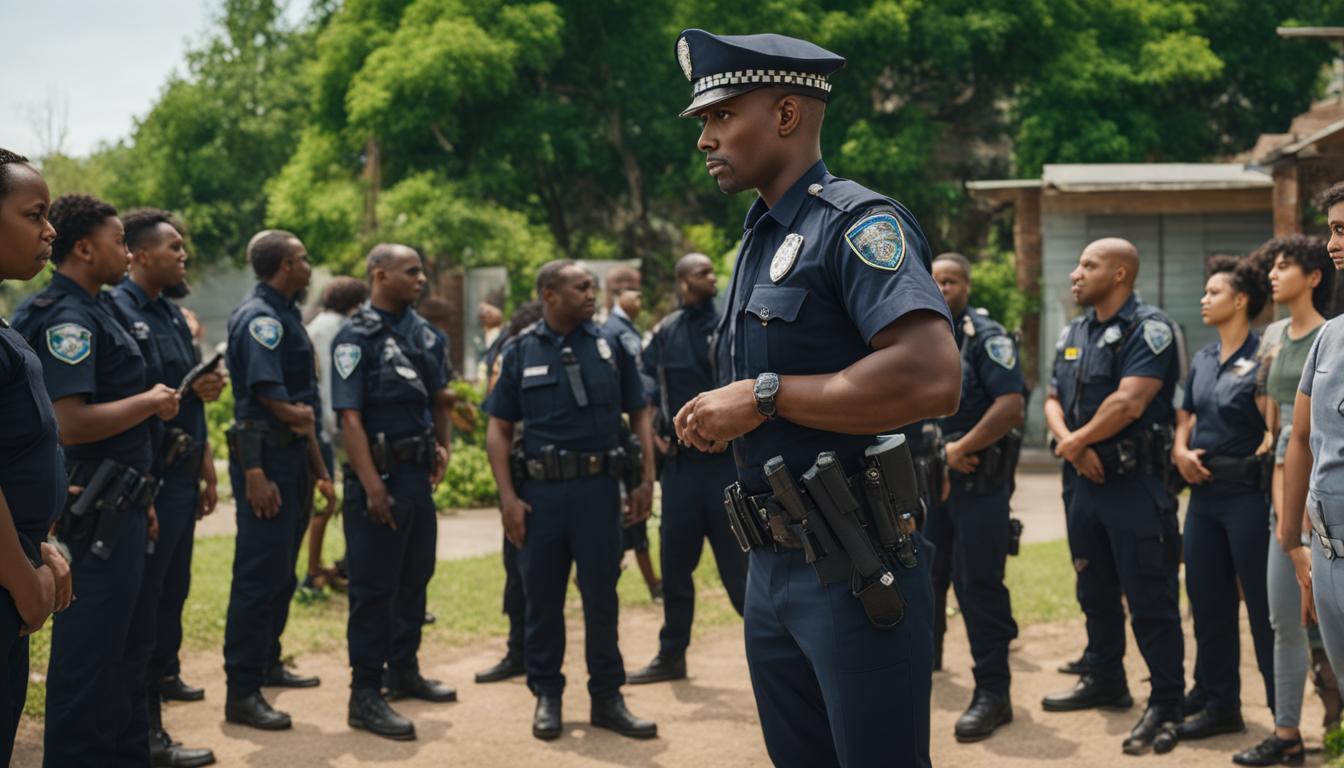Are Police Investigating You? How to Know – Tips
Did you know that there are ways to know if the police are investigating you? It’s a startling thought, but being aware of the signs can help you protect your rights and navigate the situation effectively. Whether it’s signs of police surveillance or unusual contact from law enforcement, understanding the indicators can make all the difference in maintaining your privacy and ensuring a fair process.
Key Takeaways:
- If the police reach out to your family or friends for information about you, it could be a sign of an ongoing investigation.
- Personal visits or contacts from the police, particularly for questioning, should prompt you to exercise your right to remain silent and consult with a lawyer.
- Be vigilant for suspicious individuals or unmarked cars that may indicate police surveillance.
- Watch out for social media requests from suspicious profiles, as they could be undercover police officers gathering information.
- Knowing your rights, such as the right to remain silent and the right to legal representation, is essential when dealing with a potential police investigation.
Signs of Police Investigation
If you suspect that you may be under police investigation, it is important to be aware of the signs that indicate police scrutiny. Recognizing these signs can help you protect your rights and take appropriate action. Here are some common indicators that police may be investigating you:
- Contact with your family or friends: If police officers reach out to your loved ones, asking questions or seeking information about you, it could be a sign that you are the subject of an ongoing investigation.
- Personal visits or contact by the police: If law enforcement officials show up at your home, workplace, or contact you directly to inquire about a criminal case, it is essential to remember that you have the right to remain silent and consult with a lawyer before responding.
- Surveillance: Suspicious individuals or unmarked vehicles observed following you or lingering near your residence, workplace, or other frequented locations might indicate that police are monitoring your activities.
- Social media requests: Police officers may create fictitious social media profiles as part of their investigations. If you receive unusual friend requests or messages from unfamiliar profiles, exercise caution as it could be an undercover officer trying to gather information.
It is crucial to stay vigilant and cautious if you notice any of these signs. Remember, being under police investigation does not imply guilt, and it is your right to seek legal counsel and protect your interests throughout the process.

Knowing Your Rights
When you suspect that you are under police investigation, it is crucial to know and understand your rights. Familiarize yourself with the following important rights:
- Fifth Amendment: Under the U.S. Constitution, you have the right to remain silent until you have met with a lawyer. You are not obligated to answer any questions without the presence of legal representation.
- Warrant Requirement: In most cases, police officers require a legal search warrant to enter your home or seize your possessions. It is essential to understand this requirement to protect your privacy and prevent unlawful searches or seizures.
- Legal Representation: The Sixth Amendment ensures individuals accused of a crime have the right to legal representation. If you believe you are being investigated by the police, consulting with an experienced defense attorney as soon as possible is crucial to protect your rights and interests.

Understanding Investigations in Canada
As an individual in Canada, it is important to have a clear understanding of your legal rights during police investigations. These rights include the right to remain silent and the right to legal representation. By having a grasp of these rights and knowing when to exercise them, you can protect yourself and ensure that due process is followed.
Canada recognizes the importance of the right to remain silent. This means that if you are under police investigation, you have the right to withhold any self-incriminating statements. It is crucial to exercise this right to avoid any potential pitfalls that can arise from making statements without proper legal advice.
Furthermore, Canadian law ensures that individuals have the right to legal representation during police investigations. This means that you have the right to consult with a lawyer who can provide guidance and assist you throughout the process. It is advisable to reach out to a lawyer as soon as possible if you suspect that you are under investigation.
While there are exceptions to providing information to the police in certain circumstances, it is generally recommended to consult with legal counsel before engaging in any communication with law enforcement. By seeking legal advice, you can ensure that your rights are protected, and you can navigate the complexities of the legal system effectively.
In conclusion, understanding your rights during police investigations is crucial in Canada. The right to remain silent and the right to legal representation are fundamental aspects of Canadian legal rights. By exercising these rights and seeking legal advice, you can protect yourself and ensure that due process is followed.
Signs of Federal Criminal Investigations
When it comes to federal criminal investigations, particularly those related to drug offenses, it’s essential to be aware of the signs that may indicate you’re being targeted. Being knowledgeable about these signs can help you navigate the situation effectively. Here are some key indicators to watch out for:
- Unusual police contact: If you find yourself experiencing frequent traffic stops or receiving unsolicited visits from law enforcement, it could be a sign that they are taking an interest in your activities.
- Police surveillance: Keep an eye out for suspicious individuals loitering near your home or workplace, as well as unfamiliar vehicles parked nearby. These may be indications that you are under surveillance by law enforcement.
- Unmarked police vehicles: Be vigilant for unmarked cars that appear to be following you or frequently show up in your vicinity. Law enforcement agencies often utilize these vehicles for covert surveillance.
- Increased police presence in your neighborhood: If you notice a sudden surge in police patrolling, officers on foot, or interviews with neighbors, it could signify that law enforcement is focusing on the area for drug-related investigations.
- Social media requests from unknown individuals: Authorities may employ social media platforms to gather evidence. Therefore, exercise caution when receiving requests or engaging in interactions with unfamiliar profiles.
In a situation where you suspect you are under federal investigation, it’s crucial to remain calm and seek appropriate legal counsel. Remember, these signs do not automatically indicate guilt, but rather raise a need for informed action to protect your rights.
Taking Action and Protecting Your Rights
If you suspect that you are under police investigation, it is crucial to remain calm and take immediate action to protect your rights. The first step you should consider is seeking legal advice from an experienced criminal defense attorney who can guide you through the process.
Consulting with an attorney is essential to ensure that your rights are protected throughout the investigation. They can provide you with the necessary guidance, help you understand the charges or allegations against you, and devise a strong defense strategy.
It is important to remain calm during this challenging time. Panicking can lead to hasty decisions or actions that may negatively impact your case. By staying calm and composed, you can fully cooperate with your legal counsel and make informed choices that protect your best interests.
Remember, being under police investigation does not imply guilt. Everyone has the right to a fair and just process. By seeking legal advice and remaining calm, you can navigate this difficult situation while safeguarding your rights and working towards a favorable outcome.
- Canada Arrest Protocol: What Police Say Upon Arrest - June 12, 2025
- Can Police Disclose Who Reported You? Find Out Here - June 6, 2025
- 2025 Window Rebates Ontario: How to Save Money While Replacing Windows and Doors - April 24, 2025




















Post Comment